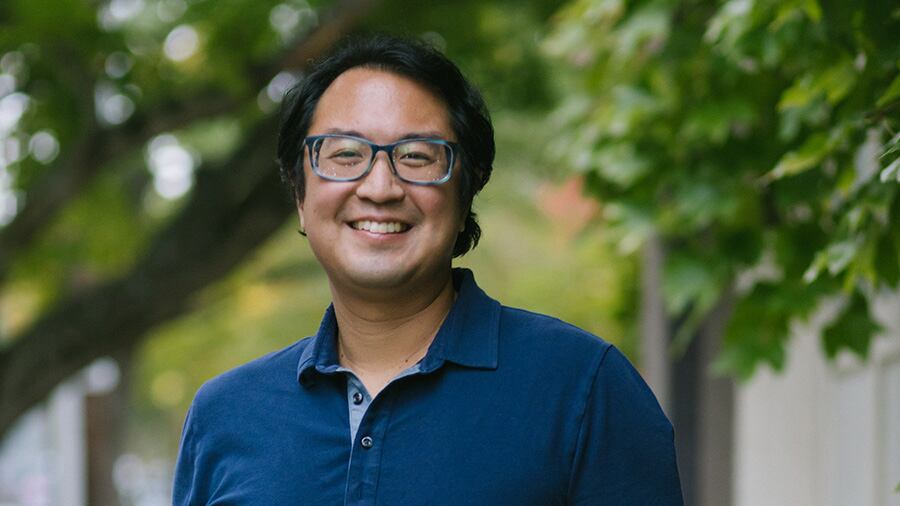Two of Metro’s six elected councilors work for nonprofits that also receive money from the agency.
That’s become an election season issue because a candidate currently running for one of those councilor’s seats, Terri Preeg Riggsby, says that creates the appearance of conflict of interest.
Preeg Riggsby is seeking to unseat incumbent Councilor Duncan Hwang, who is also interim co-director of the Asian Pacific American Network of Oregon. That nonprofit receives grant funding from Metro.
“It’s a very clear conflict of interest,” Preeg Riggsby told WW in a recent endorsement interview. “It’s important for leaders to be above reproach.”
Preeg Riggsby formerly worked as a performance auditor for the Oregon secretary of state and has held elected office for 16 years as a member of the West Multnomah Water & Soil Conservation District board. So, although she’s got an obvious motivation to criticize her opponent, she knows something of what she speaks.
And the issue isn’t new. Records that WW obtained through a public records request show that Hwang is one of two Metro councilors who work for racial equity nonprofits contracting with Metro.
Duncan Hwang
Seat: Metro Council District 6 (Portland)
Appointed: 2022
Works for: Asian Pacific American Network of Oregon
That nonprofit’s funding from Metro since 2018: $139,000 in grants
What he says: “I would not involve myself in decisions about potential funding or grants directed toward APANO. Those funding decisions are recommended by staff, reviewed by oversight committees and Metro’s independently elected auditor, and with scrutiny from the public and media.”

Juan Carlos Gonzalez
Seat: Metro Council District 4 (Washington County)
Elected: 2018
Works for: Centro Cultural de Washington County
That nonprofit’s funding from Metro since 2018: $326,000 in grants
What he says: “In 2016, the Metro Council—before I was elected—adopted the Strategic Plan to Advance Racial Equity. The plan identified key strategies for Metro to work meaningfully alongside communities of color throughout the region.”
THE POLICY PROBLEM:
Metro councilors—with the exception of Metro President Lynn Peterson, whose job is full time—are part-time employees. Metro pegs their salaries at one-third of the salary of a circuit judge, $52,847 a year.
Metro’s broad portfolio, which ranges from planning for regional transportation, land use and solid waste policies to running venues like the Oregon Convention Center and the Oregon Zoo, has expanded in recent years, with the passage of a $653 million housing bond in 2018 and a $2.5 billion homeless services measure in 2020.
Hwang and Gonzalez say that Metro’s expanded mission means that councilors end up working full-time hours for the agency, even though the pay is part time.
Preeg Riggsby says it’s exactly those expanded duties and particularly the raising and distribution of billions of new dollars that should make Metro and its councilors more responsive to any appearance of conflict of interest. She says the only way for councilors to remove the conflict if they also work for nonprofits that get money from the agency is to give up the nonprofit work.
“I think he should stop working at APANO,” she said of Hwang. “I would quit that job. To me, that is black and white.”
Raising councilors’ salaries to full time is politically tricky. Oregon legislative leaders considered and abandoned the idea of raising lawmakers’ salaries earlier this year, even though at least three veteran House Democrats are giving up their seats because of low pay.
Gonzalez and Hwang acknowledge that the optics of raising councilors’ pay are less than ideal. In the meantime, both men say, they are acting in full compliance with state ethics laws and steering clear of any situation that could present a conflict.
“I believe that part-time elected officials should not be prohibited from retaining outside employment,” Gonzalez says. “That policy would have incredibly harmful and unintended consequences on the kind of people able to run for office.”
Hwang, a lawyer by training, agrees.
“When you elect citizens with day jobs, the potential for conflicts of interest in the public policy arena is simply a reality,” he says. “I strongly believe that Metro has processes in place that address these potential conflicts to maintain public trust in our decision-making.”

